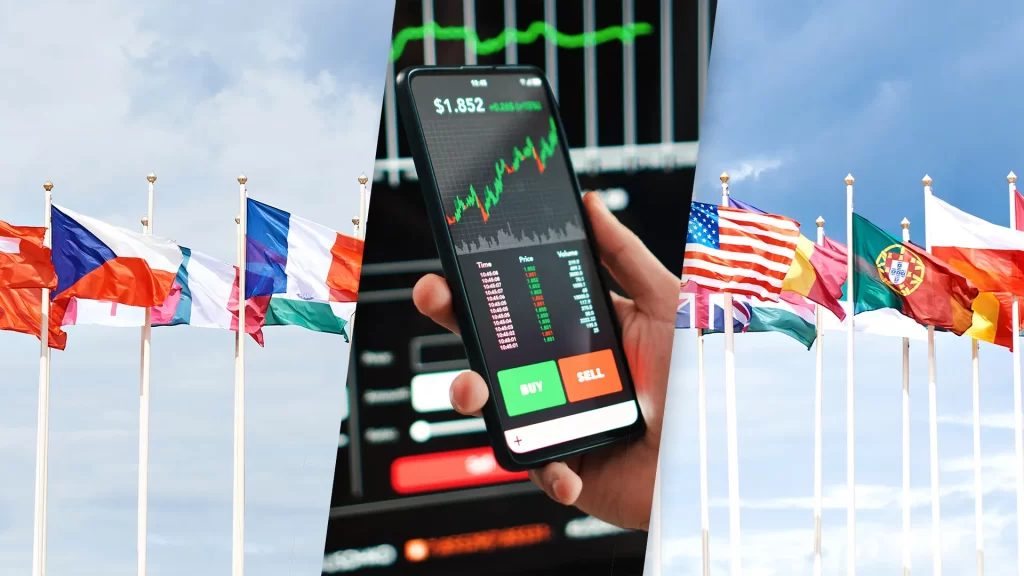What is the meaning of forex?

What is Forex? An Introduction to the World's Largest Financial Market
What is Forex? An Introduction to the World’s Largest Financial Market
Forex, or foreign exchange, is the largest and most liquid financial market in the world, where currencies are traded against each other. Every day, trillions of dollars flow through this global network of banks, financial institutions, and individual traders. The forex market plays a crucial role in international trade, investment, and economic stability. But what exactly is forex, and why is it so important?
A Brief History of Forex
The concept of exchanging one currency for another dates back to ancient times when merchants and traders from different regions needed a way to do business with each other. However, the modern forex market began to take shape in the 20th century.
In 1944, the Bretton Woods Agreement established fixed exchange rates, where currencies were tied to the US dollar, which was backed by gold. This system lasted until 1971, when the US abandoned the gold standard, leading to the creation of the modern floating exchange rate system. This means currencies are now valued based on supply and demand in the market, allowing them to fluctuate freely.
Today, the forex market is decentralized, operating 24 hours a day, five days a week, across major financial centers like London, New York, Tokyo, and Sydney. This non-stop trading environment makes forex unique and highly accessible to traders worldwide.
How Does Forex Work?
Forex trading involves buying one currency while simultaneously selling another. These transactions are conducted in currency pairs, such as EUR/USD (Euro/US Dollar) or USD/JPY (US Dollar/Japanese Yen). The first currency in the pair is the base currency, and the second is the quote currency. When you trade forex, you are speculating on the value of one currency relative to another.
For example, if you believe the euro will strengthen against the US dollar, you might buy the EUR/USD pair. Conversely, if you think the euro will weaken, you might sell the pair. Profits are made by accurately predicting these currency movements.
Why Forex Matters
The forex market is vital for several reasons:
- Global Trade and Investment: Businesses and governments rely on forex to facilitate international transactions. For instance, if a company in Papua New Guinea wants to import goods from Japan, it must convert PGK (Papua New Guinean Kina) into JPY (Japanese Yen).
- Currency Hedging: Companies and investors use forex to hedge against currency risks, protecting themselves from unfavorable exchange rate fluctuations that could impact their profits.
- Economic Indicators: The forex market is sensitive to economic news, interest rate changes, and geopolitical events. Central banks often intervene in forex markets to stabilize or influence their national economies.
- Investment Opportunities: Forex trading offers individuals a chance to profit from currency fluctuations. With a daily trading volume of over $7 trillion USD, the market provides ample opportunities for traders worldwide.
Forex Trading in Papua New Guinea
Forex trading is gaining popularity in Papua New Guinea as more people seek alternative investment opportunities. With the rise of online trading platforms, PNG residents can access the forex market from anywhere with an internet connection. However, forex trading comes with risks, and it’s essential for beginners to educate themselves and practice with demo accounts before trading with real money.
According to PNGEans.com, an increasing number of Papua New Guineans are exploring forex as a way to diversify their income sources. The site offers valuable resources, community discussions, and insights into forex trading tailored for PNG residents.
The Role of Brokers in Forex Trading
To trade forex, you’ll need a broker to facilitate your transactions. Forex brokers offer trading platforms, tools, and leverage, allowing traders to control large positions with relatively small investments. Leverage can amplify profits, but it also increases the risk of significant losses.
When choosing a broker, consider factors like regulation, fees, customer support, and the trading platform’s ease of use. Reputable brokers ensure your funds’ safety and provide a transparent trading environment.
Forex Trading Strategies
Successful forex trading requires a blend of strategies, discipline, and market understanding. Here are some common strategies used by traders:
- Technical Analysis: Analyzing price charts, trends, and patterns to predict future market movements.
- Fundamental Analysis: Evaluating economic indicators, news events, and geopolitical factors that influence currency values.
- Day Trading: Making quick trades within a single day to capitalize on short-term price movements.
- Swing Trading: Holding positions for several days to take advantage of medium-term market trends.
Conclusion
Forex is a complex yet fascinating market that offers numerous opportunities and challenges. Whether you’re in Papua New Guinea or anywhere else, understanding the basics of forex trading is essential before diving in. By learning about different trading strategies and practicing risk management, traders can navigate the forex market and potentially achieve their financial goals.
For those interested in exploring forex trading further, PNGEans provides valuable resources, insights, and community support tailored to Papua New Guineans. Embrace the world of forex and discover the potential of this dynamic financial market.
4o